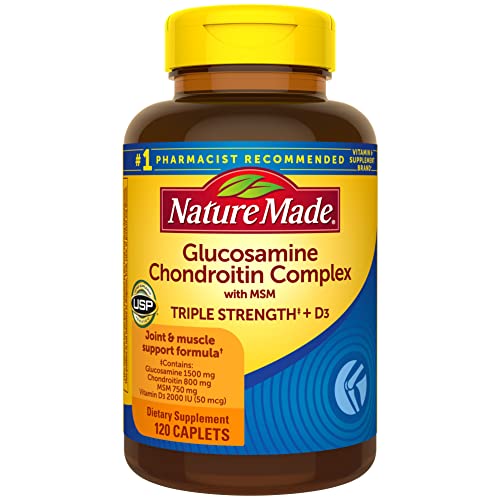Doxycycline Reduces STI Risk in MSM by Two-Thirds - Study
Quick Summary: A recent study found that taking the antibiotic doxycycline after sex without a condom significantly lowered the risk of getting gonorrhea, chlamydia, and syphilis by about two-thirds in men who have sex with men (MSM) and transgender women.
Does Doxycycline Prevent STIs?
Yes! This research shows that taking doxycycline after sex can dramatically reduce your chances of getting common sexually transmitted infections (STIs). The study focused on three STIs: gonorrhea, chlamydia, and syphilis.
How the Study Worked
- Who was studied: The study included men who have sex with men (MSM) and transgender women. Some were already taking medicine to prevent HIV (PrEP), and some were living with HIV.
- How long: The researchers followed participants for a period of time, checking for new STIs.
- What they took: Participants took a single dose of doxycycline (200mg) within 72 hours after having sex without a condom.
What This Means For You
If you're an MSM or a transgender woman and have sex without condoms, this research suggests that taking doxycycline after sex could significantly lower your risk of getting an STI. Talk to your doctor about whether this is right for you.
- Reduced Risk: The study showed a massive reduction in STIs.
- Easy to Take: Doxycycline is a pill, making it easy to use.
- Talk to Your Doctor: Discuss this with your healthcare provider to see if it's a good option for you.
Study Limitations
It's important to know that this study isn't perfect:
- Not a Cure-All: Doxycycline doesn't protect against all STIs, only gonorrhea, chlamydia, and syphilis.
- Antibiotic Resistance: There's a small risk that bacteria could become resistant to doxycycline over time.
- Who Was Studied: The study was mostly done on white and Hispanic/Latino participants, so the results might be different for other groups.
- Open-Label: The study was not "blinded" (participants knew they were taking the drug), which could have affected the results.
Technical Analysis Details
Key Findings
The study found that postexposure doxycycline (200 mg taken within 72 hours of condomless sex) significantly reduced the combined incidence of gonorrhea, chlamydia, and syphilis by approximately two-thirds in both men who have sex with men (MSM) and transgender women. In the PrEP cohort, STI diagnosis rates were 10.7% (doxycycline) vs. 31.9% (standard care), with a relative risk (RR) of 0.34 (95% CI: 0.24–0.46; P<0.001). In the PLWH cohort, rates were 11.8% (doxycycline) vs. 30.5% (standard care), RR 0.38 (95% CI: 0.24–0.60; P<0.001). Doxycycline reduced individual STI risks: chlamydia (RR: 0.12 in PrEP, 0.26 in PLWH) showed the strongest effect, followed by gonorrhea and syphilis. However, tetracycline-resistant gonorrhea emerged in 5/13 doxycycline recipients vs. 2/16 in standard care.
Study Design
This was an open-label, randomized cohort study conducted among 501 participants (327 in the PrEP cohort, 174 in the PLWH cohort) between 2018 and 2022. Participants were MSM or transgender women with recent bacterial STIs. Quarterly follow-up visits assessed STI incidence over time.
Dosage & Administration
Participants received 200 mg of doxycycline orally within 72 hours after condomless sex. The open-label design meant no placebo was used; standard care involved no prophylaxis.
Results & Efficacy
Doxycycline demonstrated robust efficacy:
- PrEP cohort: Absolute risk reduction of -21.2 percentage points (10.7% vs. 31.9% STI diagnoses).
- PLWH cohort: Absolute risk reduction of -18.7 percentage points (11.8% vs. 30.5% STI diagnoses).
- Individual STIs:
- Chlamydia: RR 0.12 (PrEP) and 0.26 (PLWH).
- Gonorrhea: RR 0.45 (PrEP) and 0.43 (PLWH).
- Syphilis: RR 0.13 (PrEP) and 0.23 (PLWH), though the PLWH CI (0.04–1.29) suggests uncertainty for syphilis.
- Adverse events: Five grade 3 events (e.g., gastrointestinal issues) and no serious adverse events linked to doxycycline.
Limitations
- Open-label bias: Lack of blinding may have influenced behavior or reporting.
- Demographics: 67% White, 30% Hispanic/Latino, limiting generalizability to non-White populations.
- Syphilis data: Wide CI in PLWH cohort (0.04–1.29) due to low case numbers.
- Antibiotic resistance: 5/13 doxycycline recipients developed tetracycline-resistant gonorrhea vs. 2/16 in standard care, raising concerns about long-term resistance risks.
Clinical Relevance
For high-risk MSM and transgender women, doxycycline postexposure prophylaxis offers a practical, effective strategy to reduce bacterial STI incidence, particularly chlamydia and gonorrhea. However, the emergence of tetracycline resistance underscores the need for cautious, targeted use and ongoing monitoring. These findings support integrating doxycycline into STI prevention protocols for individuals with frequent condomless sex, but clinicians must balance benefits against antibiotic stewardship principles.
Original Study Reference
Postexposure Doxycycline to Prevent Bacterial Sexually Transmitted Infections.
Source: PubMed
Published: 2023
📄 Read Full Study (PMID: 37018493)




